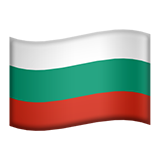 CANNED FOOD PRODUCTION IN BULGARIA
CANNED FOOD PRODUCTION IN BULGARIAThe production of canned food in Bulgaria has a long history and plays a significant role in the country's food industry. It combines traditional culinary practices with modern technology to produce a wide range of canned goods for both domestic consumption and export.
Overview of the Industry
1. Historical Development:
- Bulgaria's canned food production began in earnest in the early 20th century.
- The industry expanded significantly during the socialist era when state-owned enterprises focused on food processing to meet domestic and export needs.
2. Key Products:
- Fruits: Peaches, cherries, apricots, and plums are commonly canned, reflecting Bulgaria's rich agricultural output.
- Vegetables: Tomatoes, peppers, cucumbers, and beans are widely processed. Pickled vegetables and lyutenitsa (a traditional red pepper and tomato spread) are particularly popular.
- Meat and Fish: Canned meat products, pâtés, and fish are also part of the industry but on a smaller scale compared to fruits and vegetables.
3. Production Techniques:
- Traditional recipes are often preserved, blending them with modern canning techniques.
- The use of local ingredients ensures high-quality, flavorful products.
Economic and Market Dynamics
1. Domestic Consumption:
- Canned food is a staple in Bulgarian households, especially during winter months.
- Traditional canned goods like lyutenitsa and pickled vegetables remain consumer favorites.
2. Export Market:
- Bulgaria exports canned foods to numerous countries, including those in the EU, the Middle East, and North America.
- Organic and traditional products are particularly sought after in international markets.
3. Industry Players:
- Both large-scale enterprises and small, family-owned businesses contribute to the sector.
- Notable companies include Konservinvest,Pobeda and Hraninvest.
Challenges and Opportunities
1. Challenges:
- Competition from cheaper imports and global brands.
- Regulatory requirements for export markets, particularly in the EU.
- Ensuring sustainability and environmental compliance in production processes.
2. Opportunities:
- Growing global demand for organic and natural canned products.
- Promotion of Bulgaria’s rich culinary heritage and traditional recipes.
- Expansion into new markets through improved branding and packaging.
The Bulgarian canned food industry is poised for growth, with increasing emphasis on quality, sustainability, and market diversification. By leveraging its agricultural resources and culinary traditions, Bulgaria can strengthen its position in the global market for preserved and processed foods.